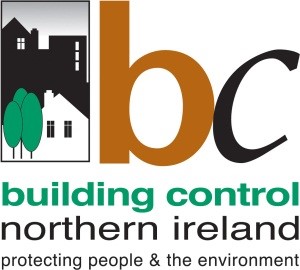Other Services
Dangerous Structures
Building owners have a duty to ensure that their buildings are properly maintained in a safe condition, so that members of the public using a highway, street of footpath are not put at risk. District Councils have responsibility to inspect dangerous buildings, walls and structures that are adjoining or abutting any street or public footpath. Read more
Street Naming and Postal Numbering
District Councils are empowered to allocate postal numbers to houses and buildings in their district and to name any new road or street. Read more
Cinema Licensing
As with entertainment venues, cinemas bring large crowds of people into an enclosed space. Fire protection, means of raising alarm, means of escape, and good management procedures are all vitally important to ensure that cinemas are safe places for the public to enjoy. Building Control expertise in these fields justifies the authority given to them to carry out the administration of the legislation on behalf of the Council.
Entertainment Licensing
Reports of tragedies throughout the world have heightened public awareness of the need for fire protection, safe means of escape and planned safety procedures for places that hold entertainment and attract large crowds. The Building Regulations provide for fire protection, means of raising alarm, and provision for means of escape in new buildings and in those that have changed from their original use. However, after the work is complete Building Regulations have no on going influence upon the management of the building. Read more
Petroleum Licensing
Any person who wishes to keep petroleum spirits or mixtures in excess of three gallons must obtain a licence from the Local Authority in whose area the premises are located. Such spirits and mixtures are highly flammable and under certain conditions can be extremely hazardous. For this reason the Council strictly controls their storage and use. Some Councils use their Building Control Department to facilitate the administration and enforcement of the petroleum legislation.
Fire Risk Assessment
With the introduction of the The Fire Precautions (Workplace) Regulations 2000 there is an obligation for each Local Authority to define and negate the risks associated with each property for which it is responsible. This involves carrying out a risk assessment, the purpose of which is to identify where fire may start and anyone who may be put at risk from that fire. Since the introduction of these regulations each Local Authority has taken steps to ensure that sufficient staff have been trained to carry out the assessments in order that customers and staff are protected.
Accessibility
With the emergence of such legislation as the Disability Discrimination Act 1995 the Building Control Service plays its part by ensuring that the spirit of the legislation is complied with as fully as possible. Government has imposed a clear duty on service providers to ensure that sufficient measures are taken to provide access for all. The latest revisions of the Building Regulations embrace these principles and require the provision of equal access to buildings for everyone.
History
A brief history of the building control
Other Services
Dangerous Structures, Street naming and postal numbering, Cinema licensing, Entertainment licensing.


